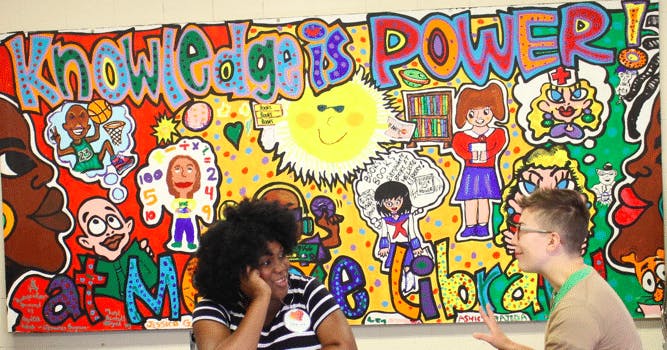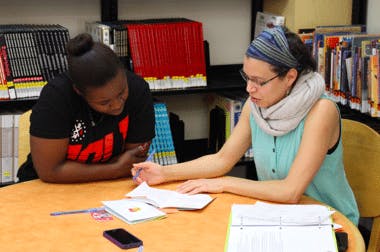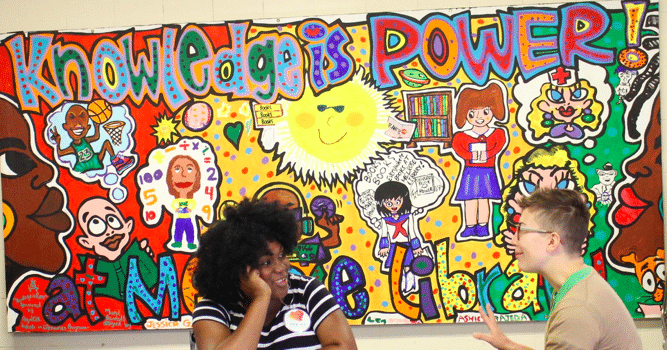By Helen Lerums, Hilary McConnaughey + Rebecca Wolfe, T Lab Child Care Team

Our research phase discovered that the first step to finding reliable child care is to know about all the available options, including information on formal and informal care and all types of financial assistance.
With our micro-trial, we sought to help expand families’ child care knowledge by: Providing opportunities for parents to learn from and share with one another; educating families about all child care options; offering tools and resources to support parents’ informal care arrangements; and connecting parents to community organizations that specialize in formal child care and subsidy support.
Our micro-trial followed the following steps:
- A local child care expert trained peer advocates on foundational child care information and meeting facilitation.
- Peer advocates met parents in community groups and sites they regularly frequent to conduct workshops about child care options.
- One-on-one meetings between parents and peer advocates to troubleshoot child care challenges and customize plans.
- Peer advocate follow-up to offer families ongoing support and reminders about next steps.
After three weeks, our parent participants made some exciting developments. All parents noted that they learned more about their child care options, including the full array of informal and formal care providers and types of financial assistance. Nearly all parents felt more confident negotiating the terms of their informal care arrangement (where applicable). Many parents took initial steps to strengthen their care arrangement and/or connect with other community organizations about a long-term care plan.

There is still much more to explore on how to best get child care information to low-income families. The peer advocate role may be filled by non-profit staff and the support offered could extend beyond child care alone. Indeed, we found that those in need of child care support were also receptive to hearing about local job fairs and transitional housing information.
Our team’s efforts concluded on April 15th, but we hope that our contributions paved the way for continued exploration. We are thankful to all the parents and community members who made this research to be possible.


